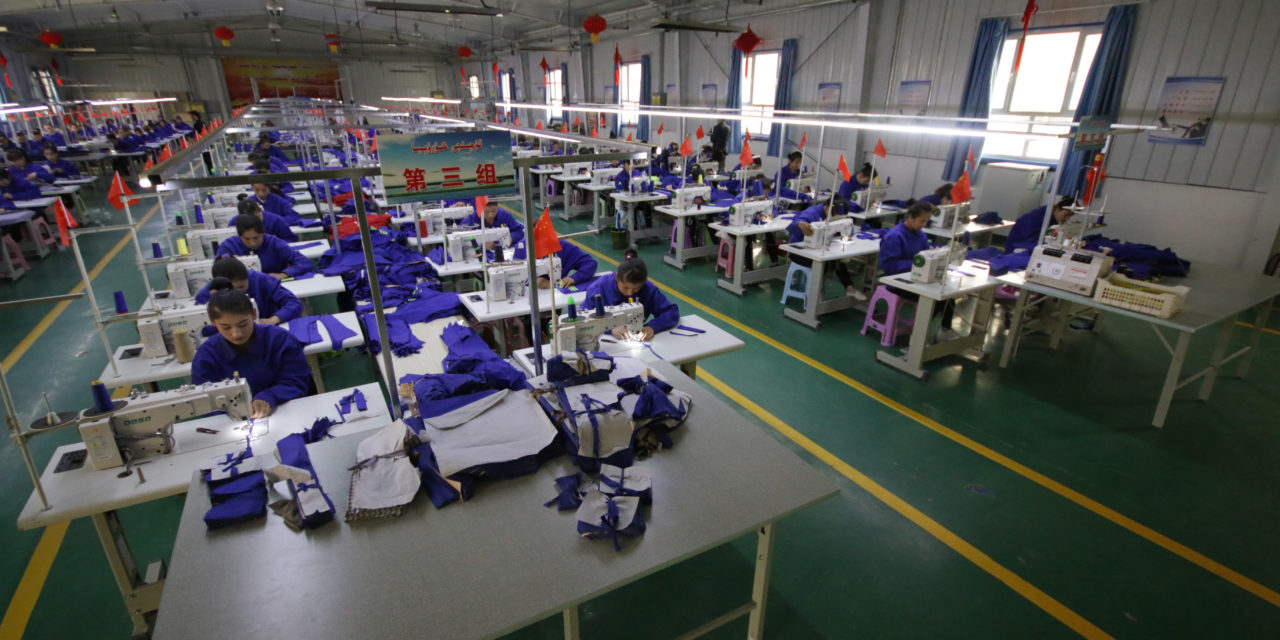On September 21, the House passed the Uyghur Forced Labor Prevention Act (H.R. 6210), which will “prohibit certain imports from Xinjiang, China and impose sanctions on those responsible for human rights violation there.” It is the latest attempt by the United States to address the genocide and forced labor currently occurring in this northwestern region of China.
Earlier this year, authorities intercepted a 13-ton shipment of beauty supplies at the U.S. border from Xinjiang, China. Inside, they found hair extensions worth over $800,000. This shipment raised deep concerns about the strong possibility that the hair was forcefully acquired from women who are in concentration camps within the Xinjiang region as part of a massive suppression effort by Chinese authorities interested in eliminating the Uyghur’s religious and cultural identity.
Considered a genocide by much of the world, the United States has been one of the most proactive countries addressing the deeply disturbing activity happening in Xinjiang.
Starting in 2017, there were rumors that men and women were disappearing and being placed within concentration camps built throughout the region. The authorities eventually stated that this unlawful detention is part of a reeducation program due to the Uyghur’s “terrorist” ties, though there was little evidence. Recently, it’s come to light that when many supposedly “graduate” from the programs, they are not sent home but forced to work in factories in Xinjiang and throughout China, which H.R. 6210 addresses.
According to the legislation, “goods manufactured or produced in Xinjiang shall not be entitled to entry into the United States unless Customs and Border Protection (CBP)” has verified and determined that they were not made with forced labor.
The President is also required to “periodically report to Congress a list of foreign entities and individuals knowingly facilitating (1) the forced labor of Uyghurs, Kazakhs, Kyrgyz, and members of other Muslim minority groups in Xinjiang; (2) efforts to contravene U.S. laws regarding the importation of forced labor goods from Xinjiang. The President shall impose property-blocking sanctions on the listed individuals and entities and impose visa-blocking sanctions on the listed individuals.”
The legislation is a welcome relief for Uyghur activists, many of whom have family members that were taken to the camps.
“Each decisive action in the United States to address this genocide gives hope to the Uyghurs and to all those who love and value freedom,” Rushan Abbas, the head of the Campaign for Uyghurs, said in an email statement. Abbas’s sister was taken by authorities over two years ago and the family has had no contact and does not know where she is. “It sends a message to the Chinese regime, and to the world, that the normalization of slavery will not be tolerated by civilized nations. Those who ignore humanity in order to reap the benefits of Uyghur suffering will not profit for long.”
Before the bill officially passed, the CBP announced in a bulletin that it would be blocking any items imported from Xinjiang that authorities suspect may have been created through the use of forced labor.
This is a great first step, but there is more to do.
While Xinjiang is where most of the concentration camps are located, the Chinese authorities are committed to crushing the Uyghur spirit and family ties by breaking up families and sending them to work as forced labor throughout the country. A variety of high-profile companies based in the United States and Europe, including Apple, Microsoft, Amazon, General Motors, Google, Dell, BMW and others, are allegedly supporting the use of forced labor in factories. Until this is stopped and addressed, the American public will be unintentionally supporting the genocide of the Uyghurs.
The bill now goes to the Senate, where it should get a warm reception if it is not derailed by the hearings for the new Supreme Court Justice.






